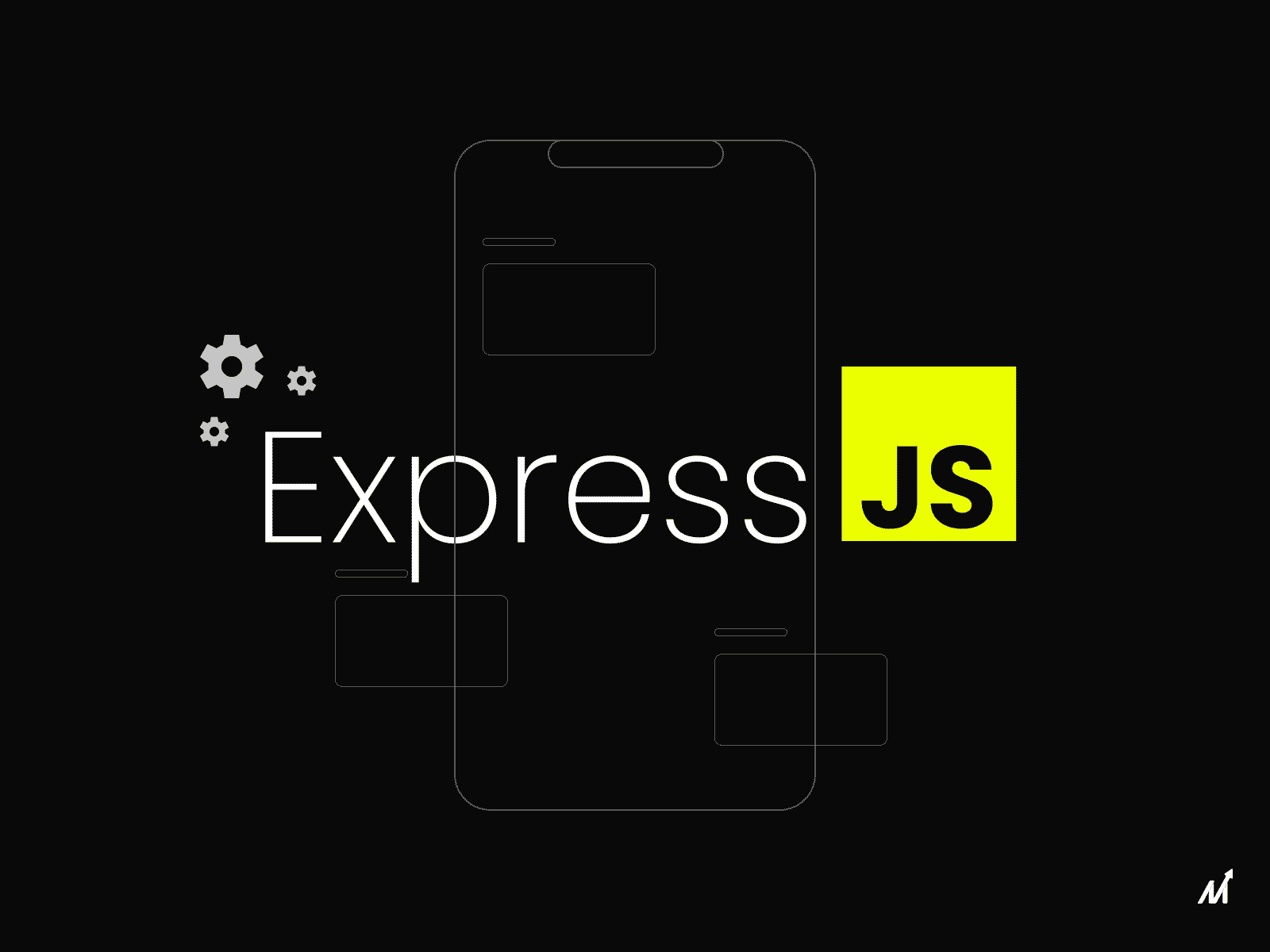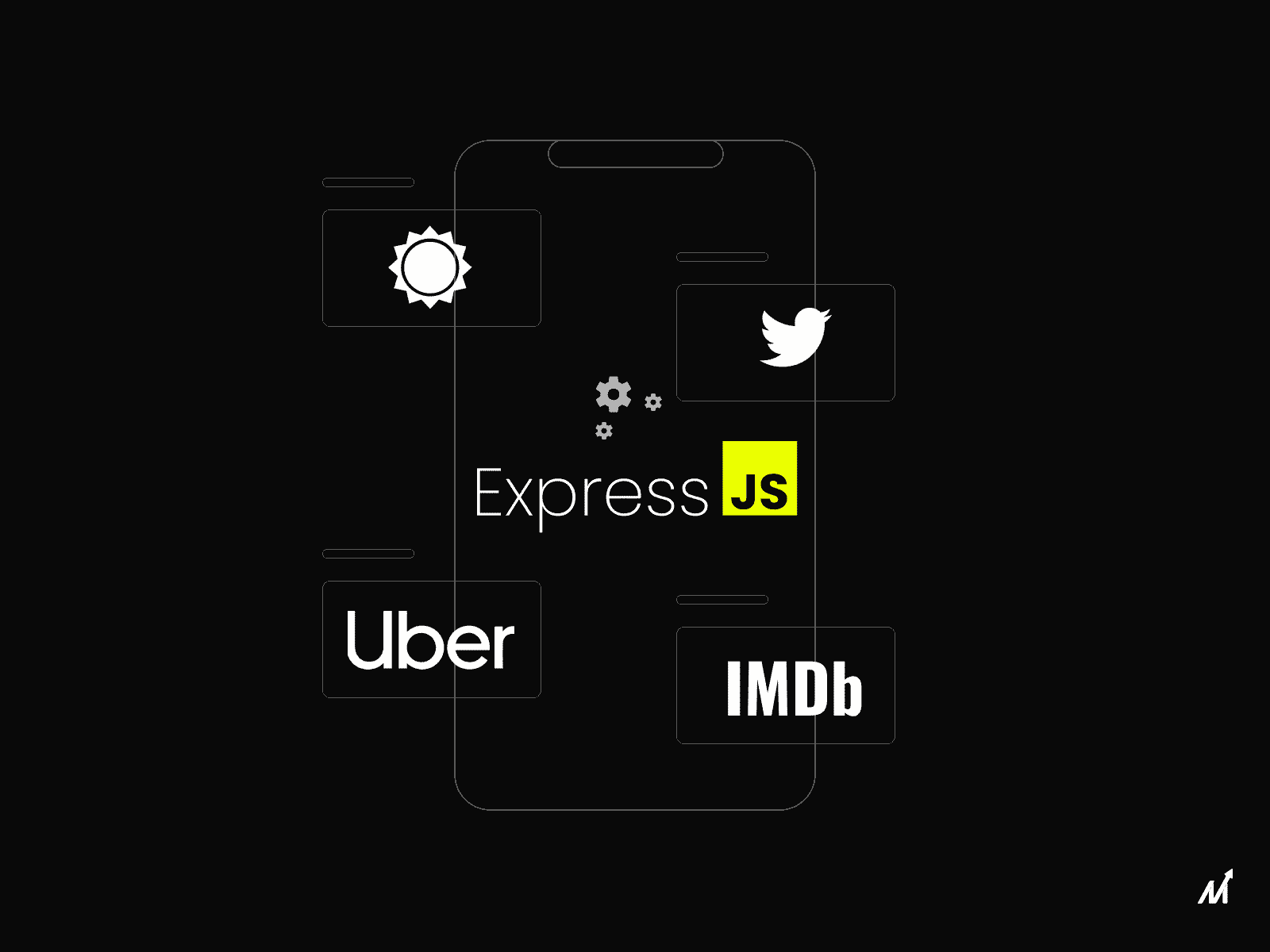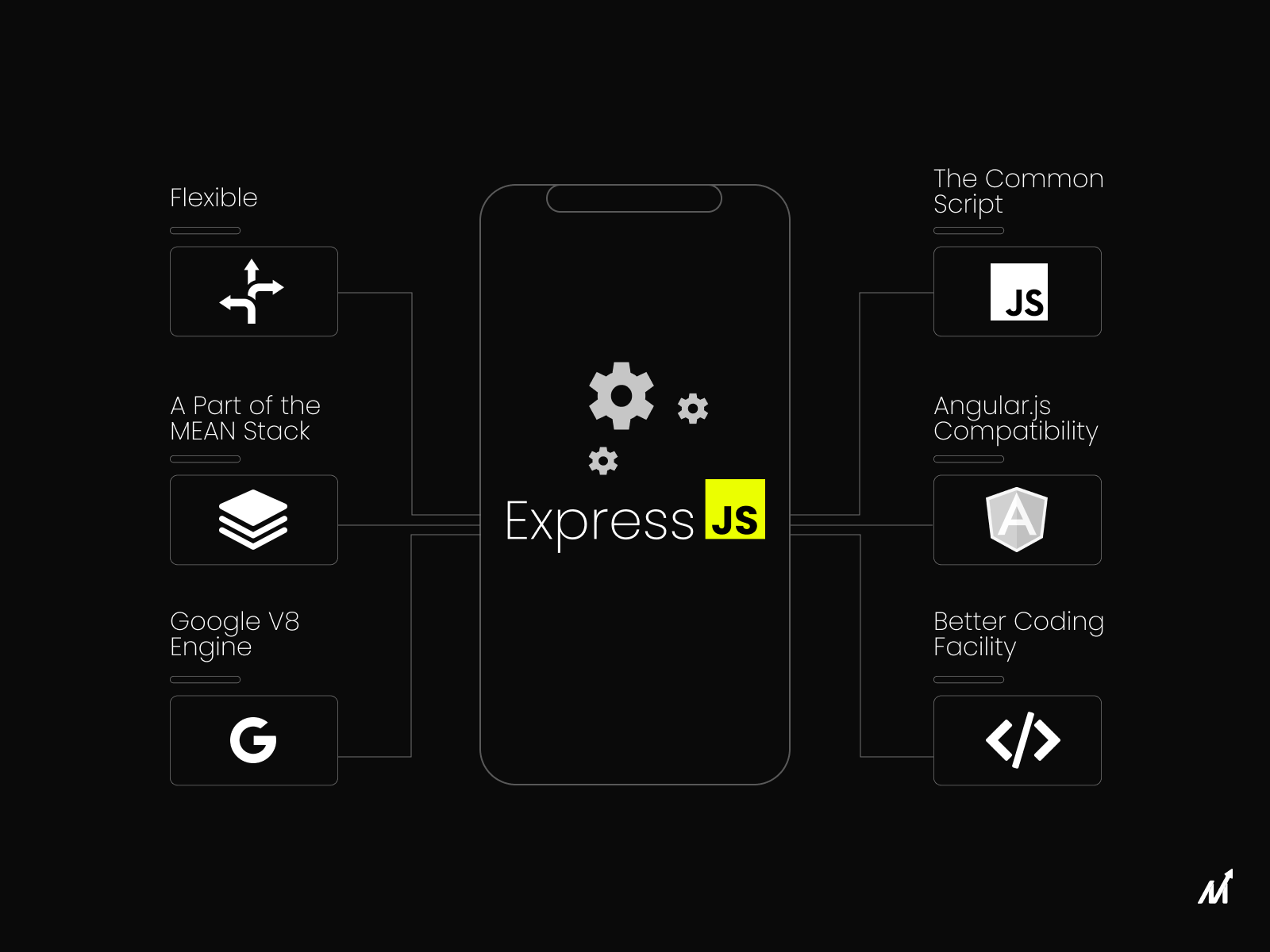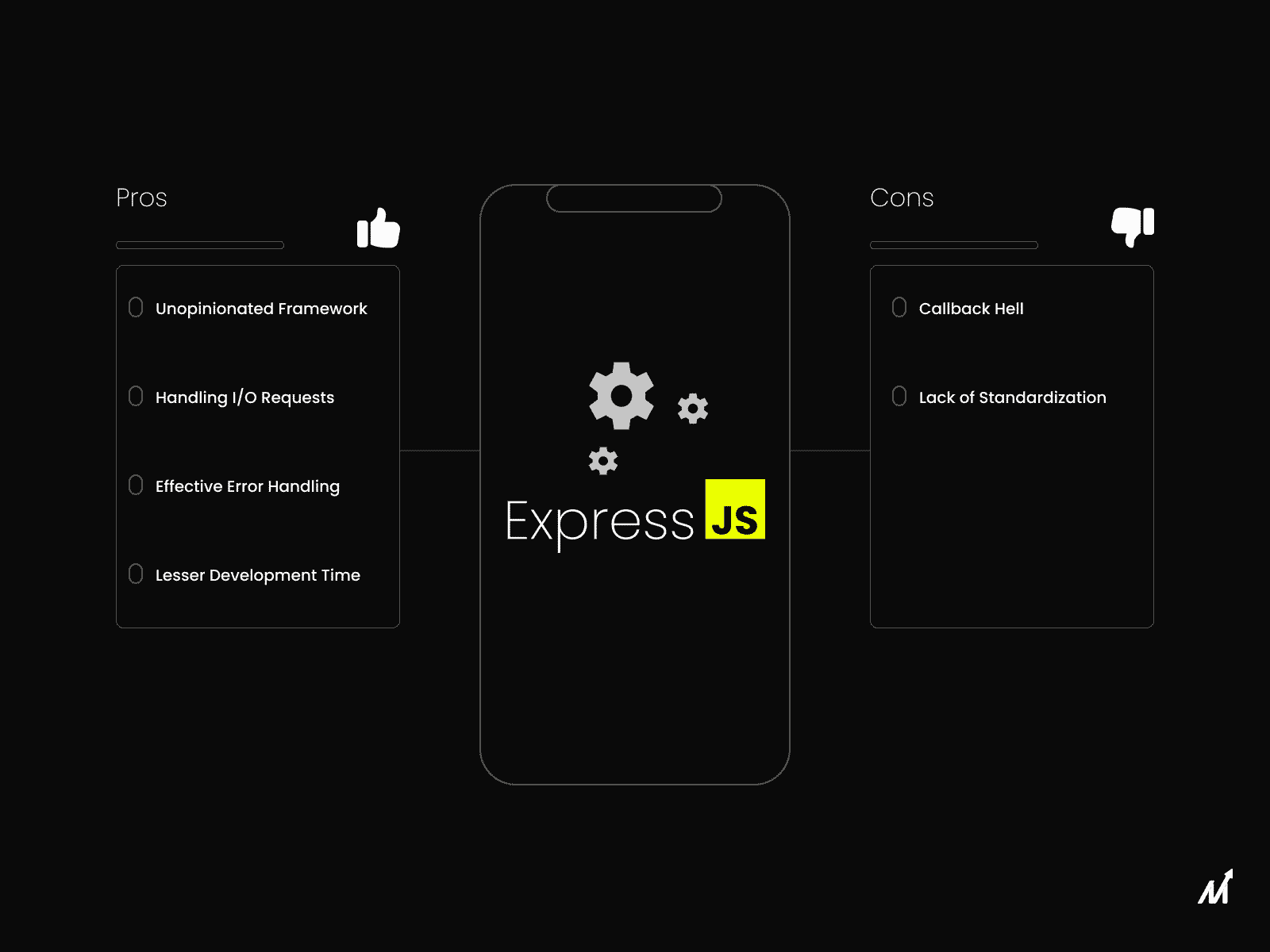Express.js Enterprise App Development: Market Usage
Adopting a solid backend technology is one of the first steps in every enterprise app development project. While a few technology trends are gaining traction in the industry, there is no such thing as a one-size-fits-all solution. Express.js app development for enterprises is appropriate if businesses want something straightforward, user-friendly, and lightweight.
The Express.js backend framework enables the development of business applications quickly using Node.js. Its central modular design allows developers to take advantage of the Model-View-Controller (MVC) architecture.
-
Express.js is ranked fourth among the top 5 backend frameworks for 2023, according to Statistics & Data analysis.
-
According to a BuiltWith analysis of the Top 10,000 sites, Express.js is the tenth most used framework.
-
According to SimilarTech, Express.js creates about 193,346 websites globally, of which 38,847 are generated alone in the US.
Express.js Overview
Express.js is a Node.js framework that is free and open source. It includes features, tools, plugins, and packages that assist in the simplification of development processes. TJ Holowaychuk, also known as Express, created and originally published it in 2010. It is based on Node.js principles and methodologies for web application development. It is a backend component of the MEAN (MongoDB, Express JS, Angular JS, and Node JS) development stack. This signifies it’s a complete solution for building apps.
Express.js is critical for developing an enterprise application, mainly for automation and technology integration. Enterprises like Express.js for various reasons, including its minimalist approach, high scalability, speed, and overall performance. The platform is based on Node.js. Almost all of the codes have been written in advance. Developers will be able to code more quickly as a result of this.
What Is Express.js Used For
- A faster I/O indicates a speedier response to user queries
- The Model-View-Controller structure makes data manipulation easier
- The ability of API to route data adds to its appeal
- Asynchronous callbacks and single-thread interactions help to establish sound request processing
- Express.js allows web applications to be routed using various URL and HTTP techniques
Express.js’s Performance
There are a lot of glowing boasts about a tool’s unique features and practical solutions. The performance, however, is the essential factor. The most relevant indicator to define productivity within the framework is the number of requests processed per second. Many online apps use this statistic since millisecond latency time is less essential than absolute throughput.
Various tests have been conducted on a variety of systems and terms. In most cases, such tests entail comparing multiple frameworks, such as Restify and Koa, in various settings.
However, the results of a single test cannot be used to judge the framework’s overall performance. The number of queries sent per second varies depending on the tested operations. They do, however, display the fundamental metrics.
According to the official Express.js review, various strategies in the code and environment can be used to improve performance. These include gzipping compression, a load balancer, a reverse proxy, and running the app in a cluster. The framework was compared to other tools in 2015, 2016, and 2017, according to DZone. It consistently delivered good results, such as 2875 requests per second on an Ubuntu VM in 2017.
Case Studies Of Express.js
-
Uber used Express.js to create Bedrock, their base web server, and optimize the middleware for security, internationalization, and other infrastructure integrations.
-
Accuweather used Express.js to provide APIs that could be integrated into other apps.
-
In 2017, Twitter switched to Express.js to speed up its Twitter Lite mobile web app.
-
IMDB also used Express.js to offer APIs that developers could use to integrate into their apps.
Why Use Express.js For Enterprise App Development: 6 Reasons
We’ve covered a lot of ground with Express.js, and now it’s time to learn why enterprise apps should use it.
1. Flexible
Express.js is a versatile framework that establishes consistency as the pivot for any business’s growth. Content negotiations, flash negotiations, dynamic views, and app-level views are among its features. It also handles numerous requests and handles routing for those requests.
Businesses need Express.js for commercial applications since it is true that a single error can make or ruin the business. Every company seeks robust solutions for its products that can manage multiple users’ requests virtually flawlessly. With the help of this framework, applications may be made that can successfully handle any volume of HTTP requests.
2. A Part Of The MEAN Stack
The technology stack built around JS-based frameworks has rendered the LAMP stack obsolete. A more sophisticated database management system than MySQL has rejuvenated the development paradigm.
MongoDB, Express.js, Angular.js, and Node.js make up MEAN. They are all equally significant. However, Express.js and Node.js are the technology stack’s backbones. Express.js handles the client-side user request and sends it to the server-side Node.js via the frontend Angular.js. It facilitates request parsing, partial processing, and MongoDB data access.
3. Google V8 Engine
The Node.js Development Package, which runs on the well-known Google Chrome V8 engine, supports Express.js Web Development.
This will allow the mobile application to use the mighty Google engine. It offers improved performance and an error-free user experience.
4. The Common Script
For web development, the most prevalent script is JavaScript. Express.js is easily interoperable with frontend technologies such as Angular.js because of its JavaScript commonality. As a result, businesses get the best of both worlds.
For frontend and backend development, most companies use separate frameworks. For their projects, businesses can pick from a variety of frameworks. However, the issue arises when the code is shared between frameworks. Coding becomes complex, and execution is frequently hampered due to the language barrier.
5. Angular.js Compatibility
Express.js is one of the JavaScript-based frameworks included in the MEAN stack for a reason. It plays well with others, particularly the Angular.js frontend framework. As we already know, it is a backend framework that enables server-side programming and application architecture.
Using Angular.js, businesses can create frontend representations of data stored in a database accessible via Express.js.
6. Better Coding Facility
Although Node.js is excellent for coding, Express.js appears to be superior. Because Express.js has a straightforward syntax, enterprise applications can benefit from Node.js modules. Express.js is the most exemplary framework to use if businesses want to reduce development time by reducing coding.
The minimalistic approach simplifies the coding process. Node.js allows businesses to build scalable programs in the background. It reduces the programming time to half of what businesses could anticipate.
Pros & Cons Of Express.js
Pros Of Express.js
-
Unopinionated Framework: Express.js has no hard and fast rules for dealing with certain operations, so businesses can use middleware packages and components however they like.
-
Handling I/O Requests: Express.js is an excellent option for businesses regularly receiving thousands of user requests and messages.
-
Effective Error Handling: The Express.js middleware can catch synchronous and asynchronous code.
-
Lesser Development Time: JavaScript forms Express.js’s backend and the frontend. As a result, developers can produce code more quickly without learning a new language.
Cons Of Express.js
-
Callback Hell: Developers who don’t understand the sophisticated coding style of the Express.js framework struggles with callbacks, one of the most mentioned difficulties with the framework.
-
Lack of Standardization: Although Express.js does not require a specific structure, it can become a problem as the team grows and workers concentrate on different aspects of the app. As a result, teams must adhere to a structure throughout the project.
How Does Express.js Ensure Enterprise-Level Scalability?
-
Express.js allows businesses to quickly design complicated features while dealing with problems and user requests.
-
A scalable application’s backend should accommodate many user requests while minimizing business interruptions.
-
Express.js provides dependable backend development tools and capabilities that allow businesses to build high-performance apps.
-
Express.js’s basic code structure handles multiple user requests and allows for rapid development. As a result, businesses may scale up more quickly and reduce the time to market.
Conclusion: Markovate’s Take
Express.js comes with everything businesses need to build enterprise applications that are scalable, adaptable, and dependable. On the other hand, the decision to use frameworks is based on the company’s requirements. It can be an excellent choice for businesses if:
-
They wish to expand their mobile app’s functionality and handle multiple user requests.
-
They want to create a website like Unsplash that allows millions of people to share and export pictures.
-
They want to make a GoDaddy-style mobile app for registering domains and providing web hosting.
In 2023, however, business owners will be looking for cost-effective enterprise app development solutions. Choosing an Express.js development company like Markovate is an intelligent move that will pay off nicely for any business.

I’m Rajeev Sharma, Co-Founder and CEO of Markovate, an innovative digital product development firm with a focus on AI and Machine Learning. With over a decade in the field, I’ve led key projects for major players like AT&T and IBM, specializing in mobile app development, UX design, and end-to-end product creation. Armed with a Bachelor’s Degree in Computer Science and Scrum Alliance certifications, I continue to drive technological excellence in today’s fast-paced digital landscape.










